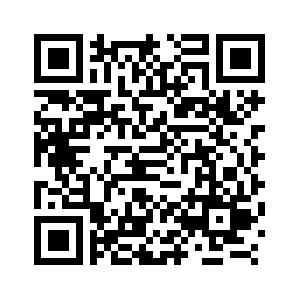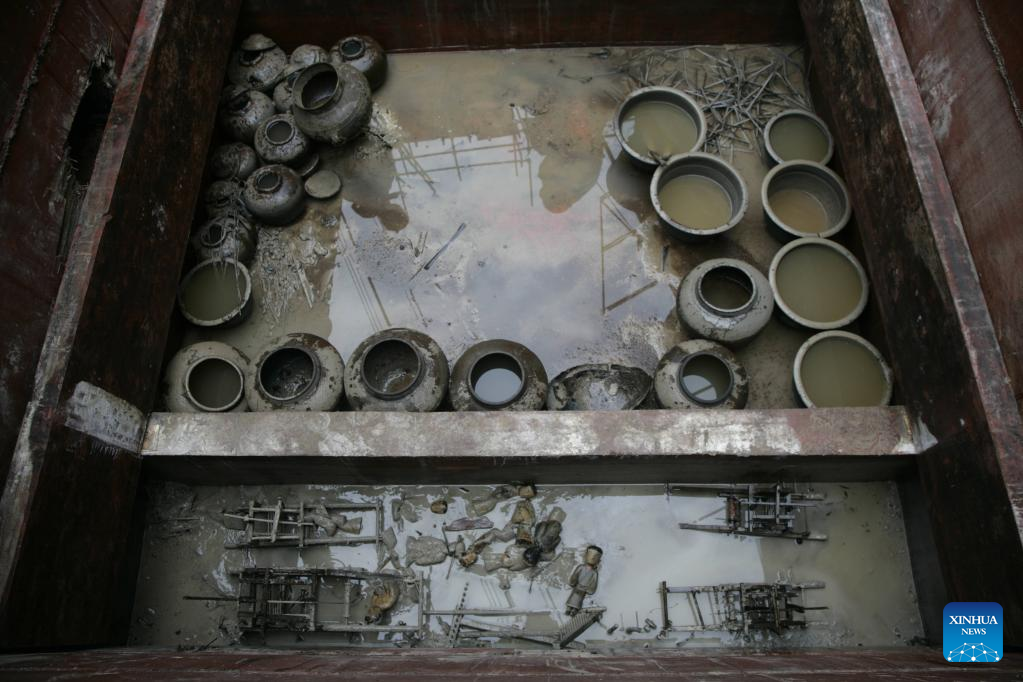
This undated file photo shows the archeological site of a cluster of tombs from the Western Han Dynasty (202 BC-25 AD) in Tianhui Town, Chengdu, southwest China's Sichuan Province. Chinese researchers have published the long-lost medical classics believed to be written by the country's ancient medical pioneer, Bian Que, based on their decipherment of bamboo slips dating back to over 2,000 years ago, said local authorities in southwest China's Sichuan Province on Thursday.(Cultural Relics and Archeology Research Institute of Chengdu/Handout via Xinhua)
CHENGDU, April 20 (Xinhua) -- Chinese researchers have published the long-lost medical classics believed to be written by the country's ancient medical pioneer, Bian Que, based on their decipherment of bamboo slips dating back to over 2,000 years ago, said local authorities in southwest China's Sichuan Province on Thursday.
These bamboo slips from the Western Han Dynasty (202 BC-25 AD) were unearthed in a cluster of tombs in Tianhui Town, Chengdu, the provincial capital, in 2012. Further study on the slips showed that the relics document valuable medical literature belonging to the school that Bian Que once followed.
During the Spring and Autumn and Warring States Period (770-221 BC), Bian Que drew on the experience of his predecessors and put forward the four diagnostic methods -- inspection, auscultation and olfaction, inquiry, and palpation, laying the foundation for traditional Chinese medicine (TCM) diagnosis and treatment.
Submerged in water for over 2,000 years, the slips have been damaged and become as soft as noodles, thus multiplying the restoration and research difficulties. After over a decade of joint efforts, archaeologists, TCM experts, and cultural relics protection and restoration experts have restored 930 bamboo slips with over 20,000 Chinese characters.
Among all the unearthed by archaeologists so far, the content is believed to be a set of ancient medical documents detailing China's hitherto richest content, most complete theoretical system, and of the utmost theoretical and clinical value.
The documents have been compiled into eight medical books as a series of books named "Tianhui medical slips," said the information office of the Sichuan provincial government during a press conference held on Thursday. All the materials, including images of the bamboo slips, editorial explanatory notes, and illustrations on the TCM meridian mannequin uncovered alongside the slips, are contained in the newly published books.
The bamboo slips and the TCM meridian mannequin combined provide rare physical evidence of the academic source of China's acupuncture and moxibustion, among China's world-class intangible heritages in traditional medicine.
"Many prescriptions recorded on the slips are still relevant today for common disease treatment. We hope to advance China's TCM theoretical innovations, improve the TCM clinical efficacy, and make more people learn about TCM culture through systematically studying the slips," said Liu Changhua, chief editor of the series. ■
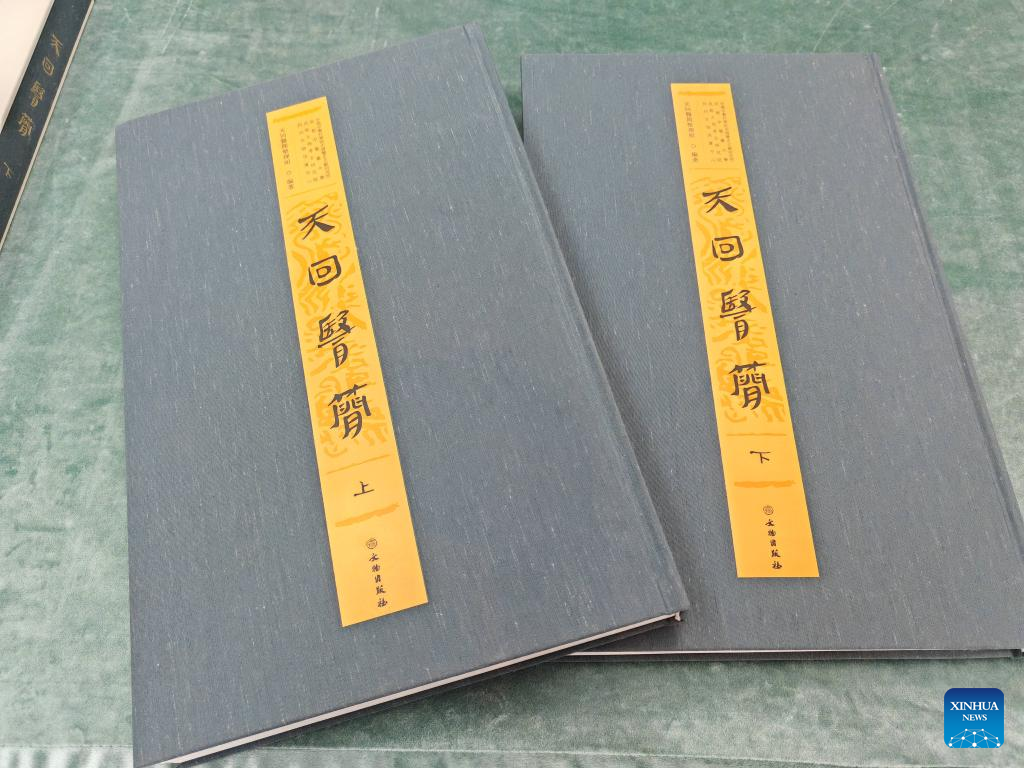
This photo taken on April 20, 2023 shows books named "Tianhui medical slips" displayed at a press conference in Chengdu, southwest China's Sichuan Province. Chinese researchers have published the long-lost medical classics believed to be written by the country's ancient medical pioneer, Bian Que, based on their decipherment of bamboo slips dating back to over 2,000 years ago, said local authorities in southwest China's Sichuan Province on Thursday.(Xinhua/Tong Fang)
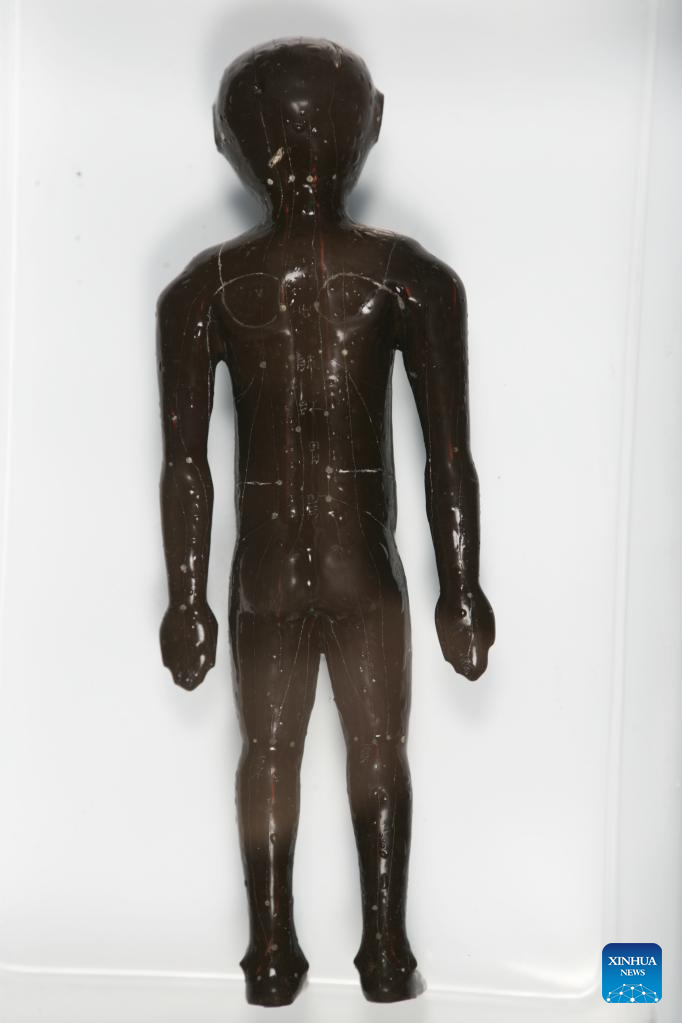
This undated file photo shows a traditional Chinese medicine meridian mannequin uncovered from a cluster of tombs in Tianhui Town, Chengdu, southwest China's Sichuan Province. Chinese researchers have published the long-lost medical classics believed to be written by the country's ancient medical pioneer, Bian Que, based on their decipherment of bamboo slips dating back to over 2,000 years ago, said local authorities in southwest China's Sichuan Province on Thursday.(Cultural Relics and Archeology Research Institute of Chengdu/Handout via Xinhua)
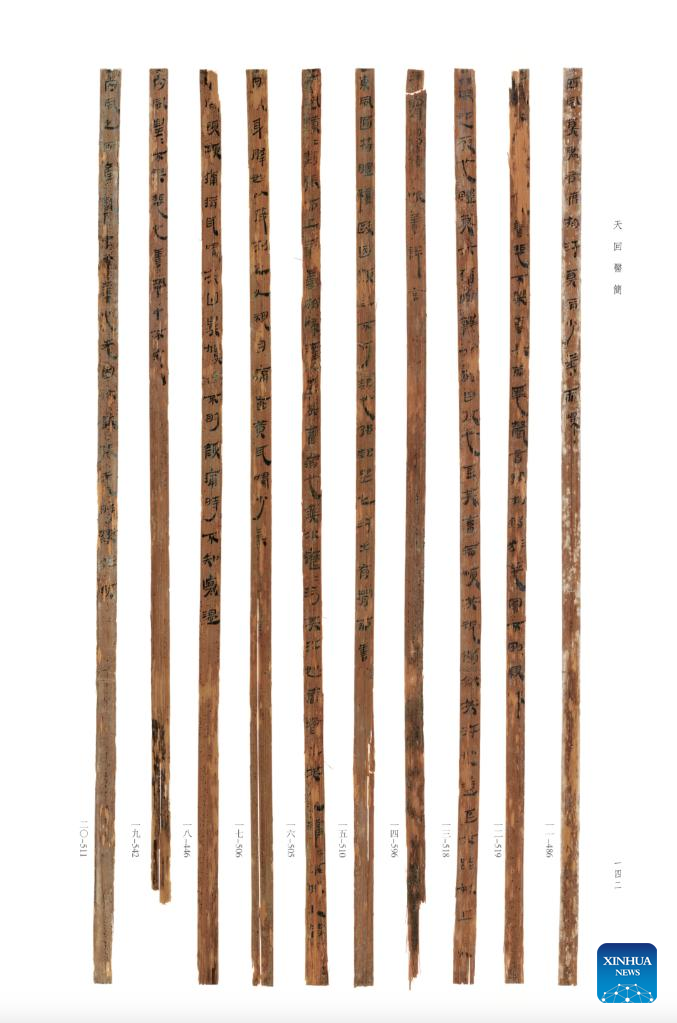
This undated file photo shows some bamboo slips uncovered from a cluster of tombs after restoration in Tianhui Town, Chengdu, southwest China's Sichuan Province. Chinese researchers have published the long-lost medical classics believed to be written by the country's ancient medical pioneer, Bian Que, based on their decipherment of bamboo slips dating back to over 2,000 years ago, said local authorities in southwest China's Sichuan Province on Thursday.(Cultural Relics and Archeology Research Institute of Chengdu/Handout via Xinhua)
